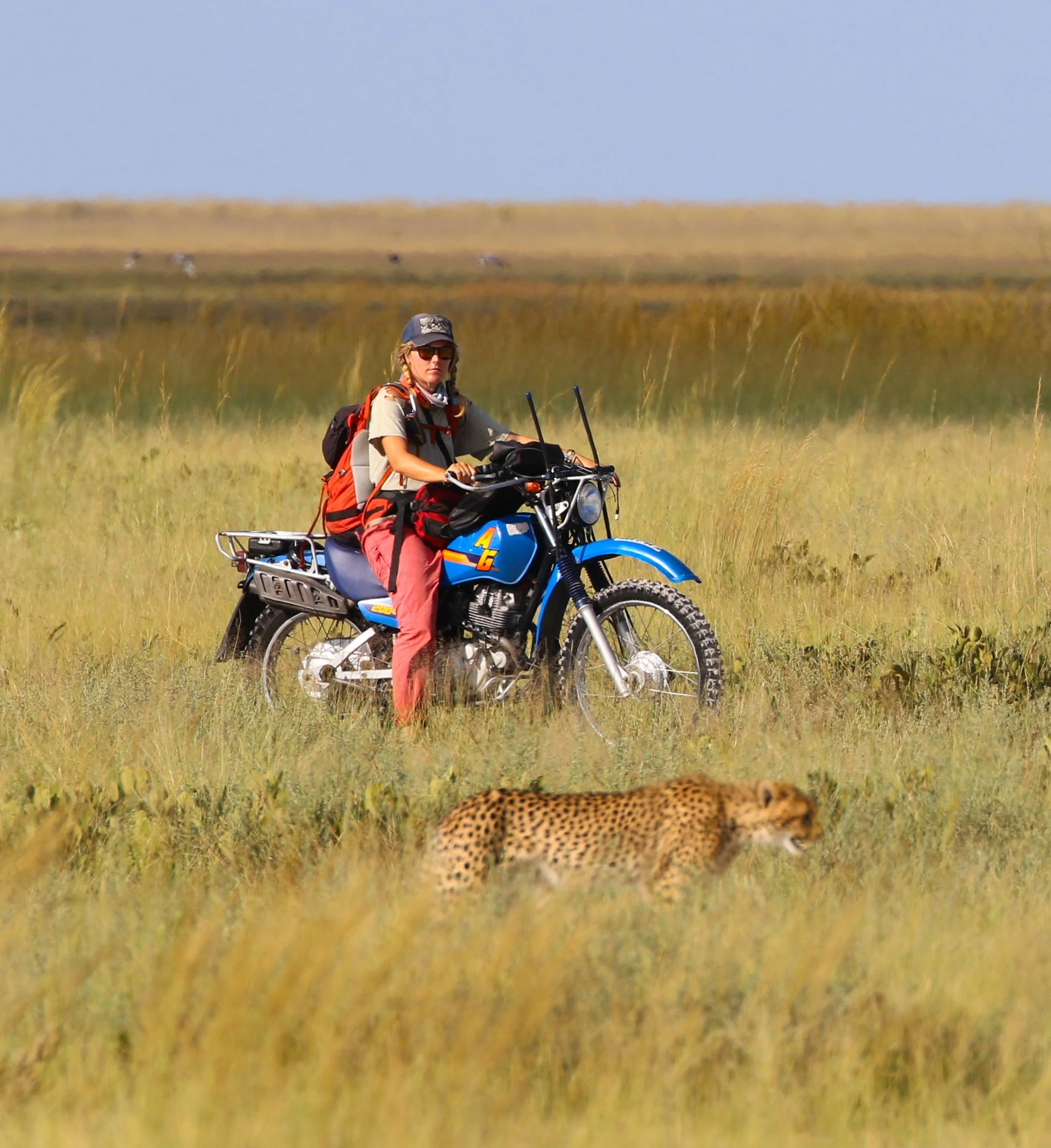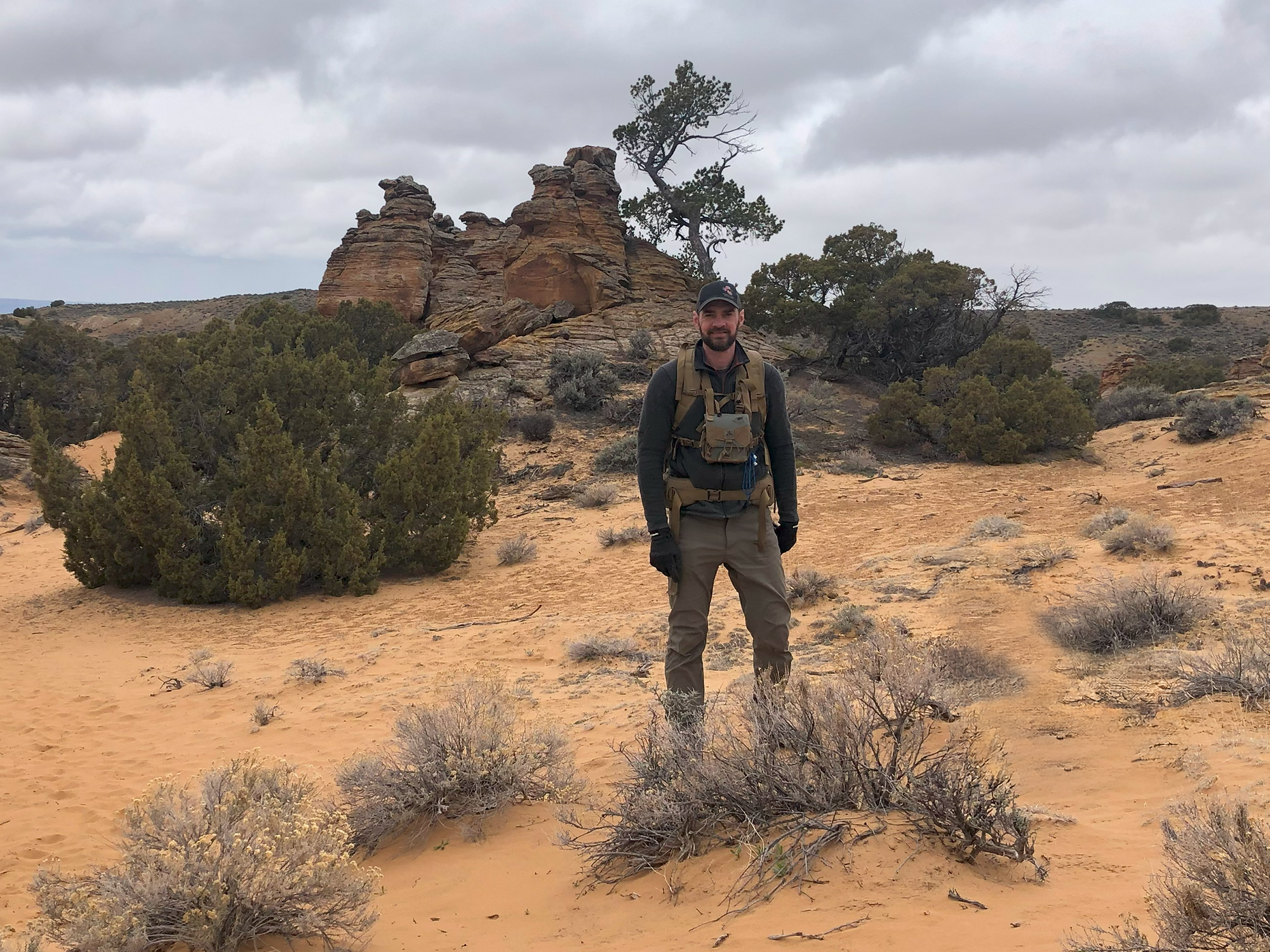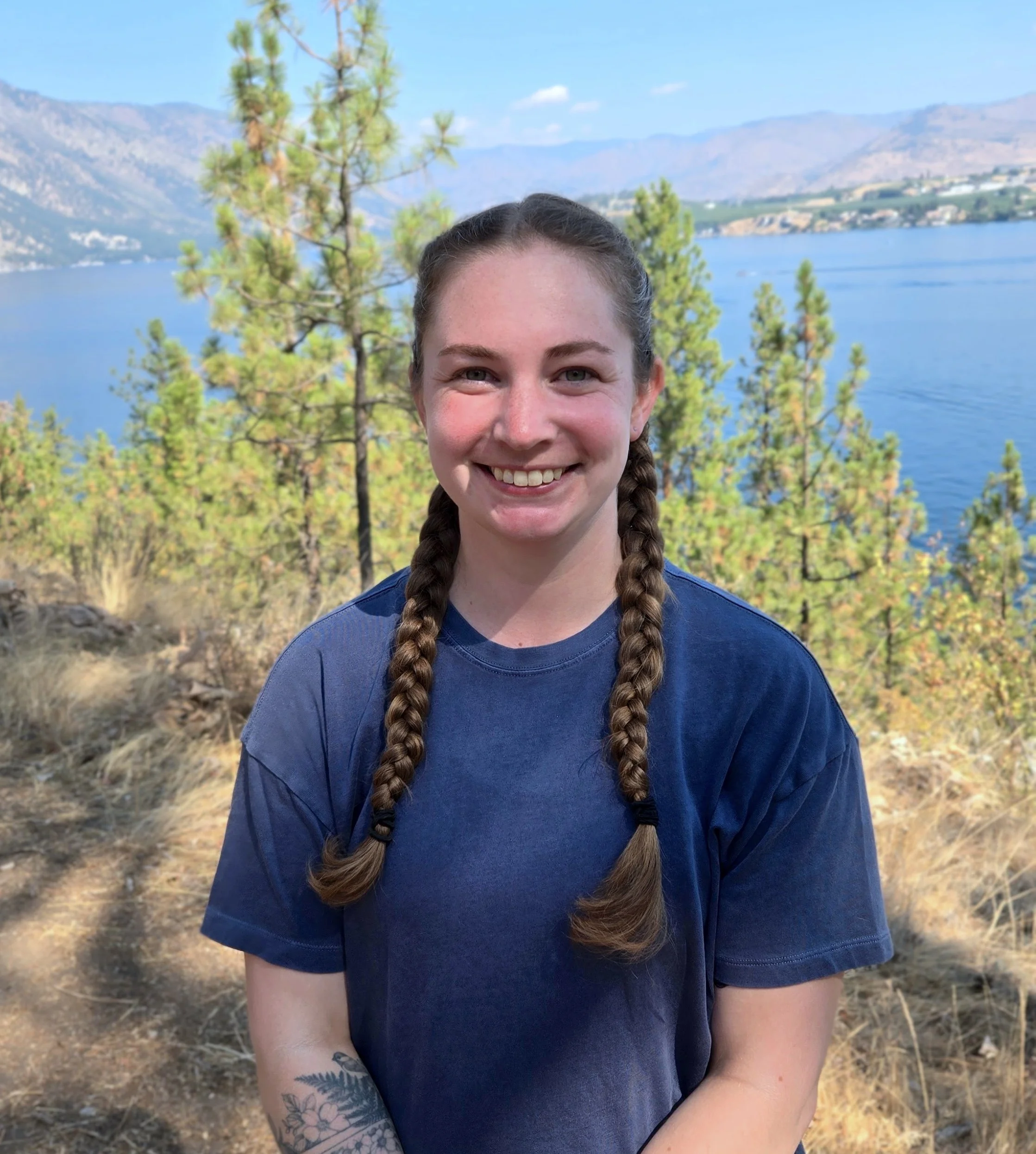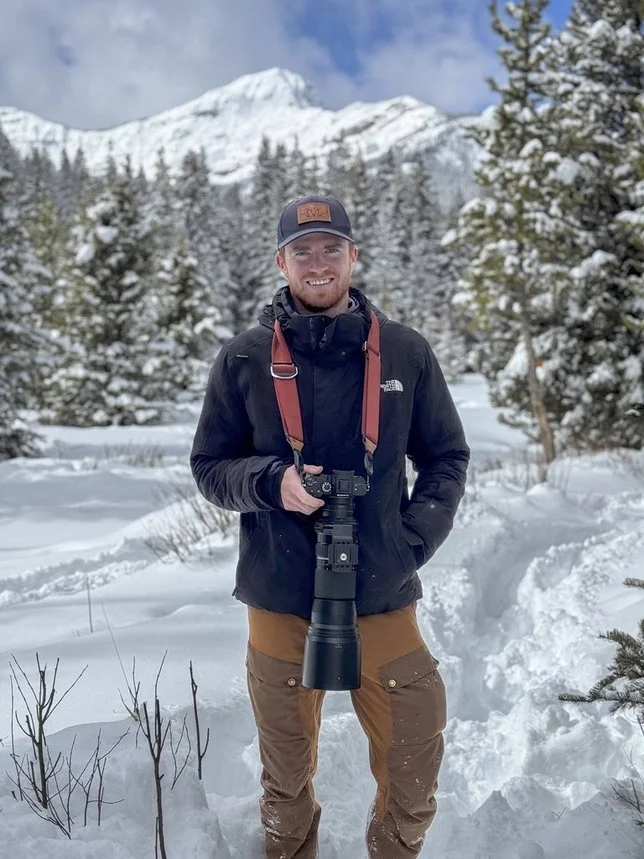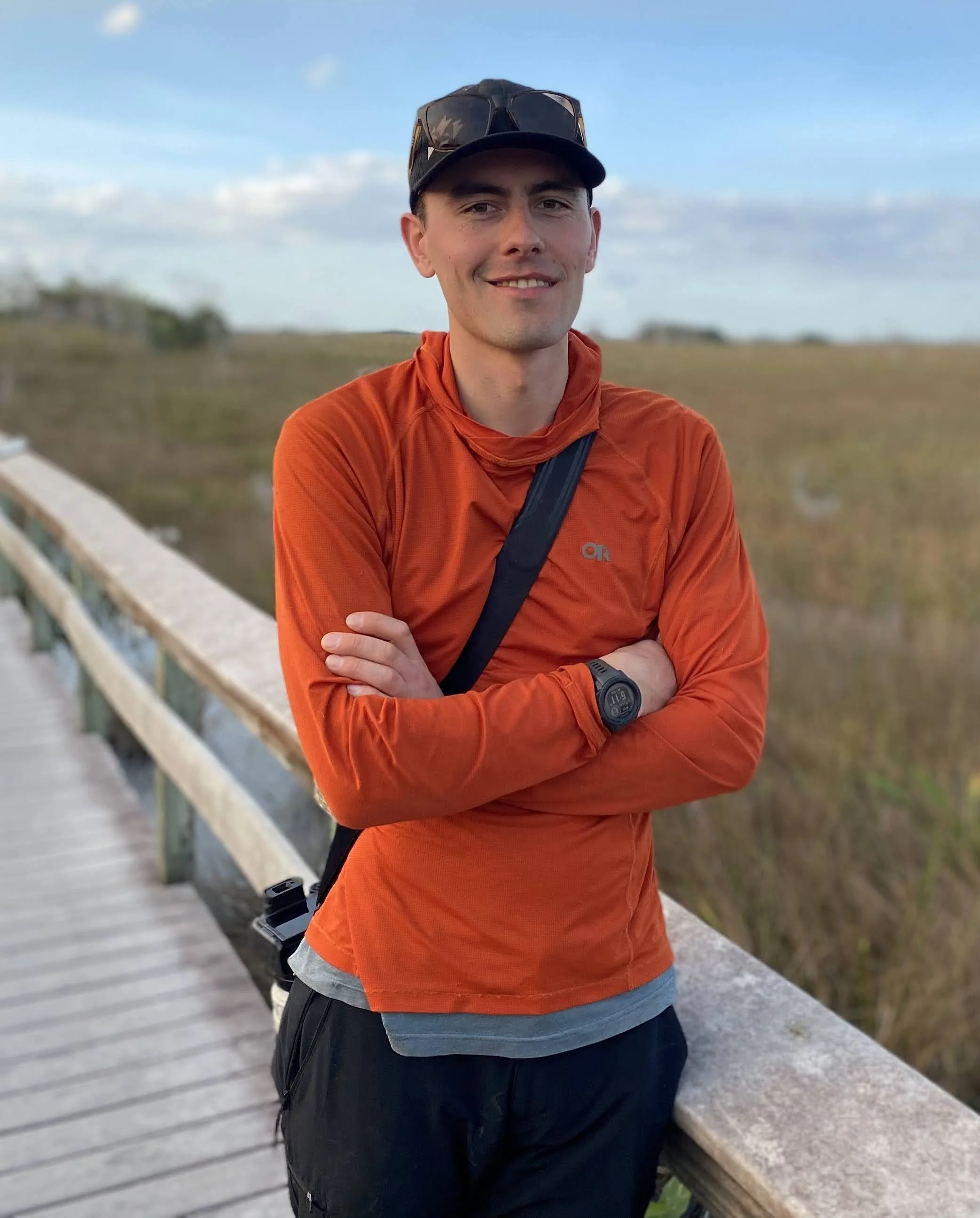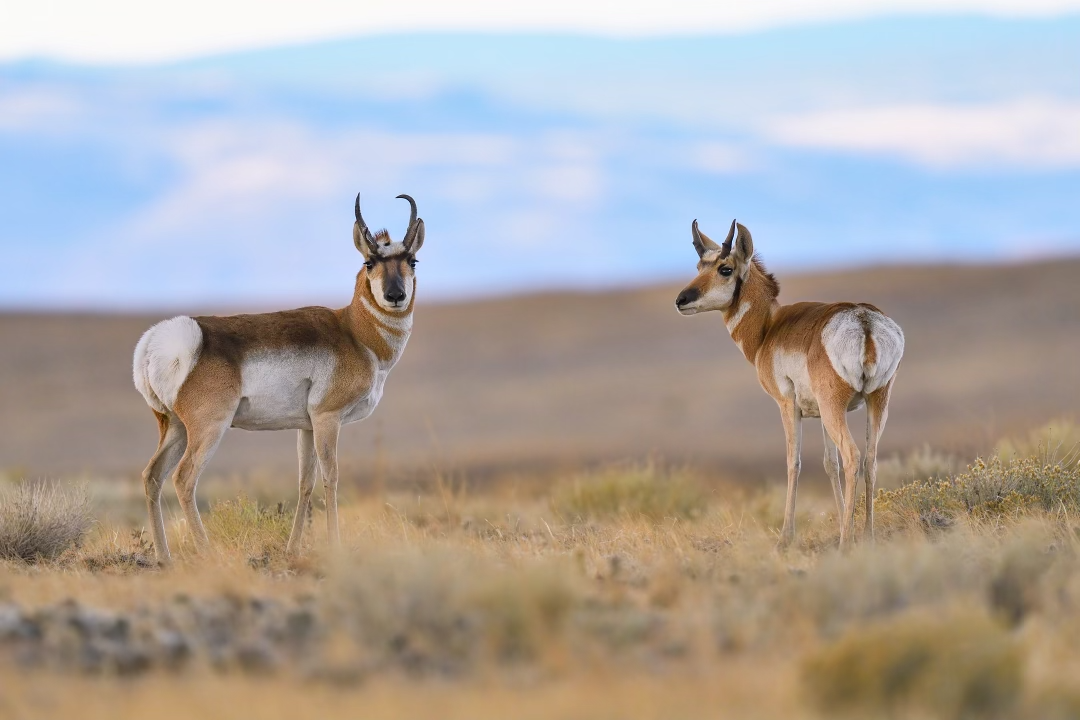
Team members
Justine Becker, PI
Justine is a behavioral ecologist broadly interested in understanding the ecological causes of individual differences in behavior and the consequences of this variation for wildlife management, as well as population- and community-level interactions. She is particularly fascinated by animal movement decisions and most of her work explores why, when, and where animals decide to move, and how these individual decisions scale up to impact animal spatial distributions and ecosystem processes. Justine moved to the US from New Zealand in 2015. Her first experiences in nature and subsequent ecological education were rooted in the unique, threatened ecosystems of Aotearoa. This background instilled her with enthusiasm for and dedication to understanding and protecting Earth’s wild landscapes and wildlife through a combination of scientific knowledge and creative ingenuity. Outside of work, Justine enjoys exploring the beautiful landscapes around Bozeman, either in pursuit of prime upland or waterfowl hunting opportunities in the fall with her bird dogs, Belle and Dusky, or learning how to cross-country ski later in winter.
Anna Kusler, PhD student
Anna is analyzing long-term data from intensive monitoring of individually-known cheetahs in the greater Kafue ecosystem of central Zambia to provide the first description of their density, demography, population dynamics, space use, and movement. This data may be coupled with data from cheetahs in Zambia's Greater Liuwa ecosystem—the only other ecosystem within Zambia supporting a breeding population—to examine the threats and factors that impact cheetah distribution, movement, and connectivity across the country. Anna is co-advised by Dr. Scott Creel, and her dissertation is a collaboration between the Zambian Carnivore Programme (ZCP), Montana State University, the Zambia Dept of National Parks and Wildlife, Panthera, and the Rangewide Conservation Program for Cheetah. Before starting her dissertation, Anna served as a senior ecologist and the site manager for ZCP's Greater Kafue Project. Before her time with ZCP, Anna received her M.S. studying mountain lion ecology and conservation in the Greater Yellowstone Ecosystem with the Panthera Puma Program. Anna received her B.S. from Cornell University, and outside of academic life is a passionate mountaineer, an avid swing-dancer, and really likes garlic bread.
Itai Namir, PhD student
Itai is studying the impacts of plague mitigation on the movement, behavior, physiology, and habitat of black-tailed prairie dogs (Cynomys ludovicianus) in northeast Montana. Itai is also co-advised by Dr. Scott Creel and Dr. Hila Shamon. Her dissertation is a collaboration between Montana State University, Smithsonian Institution, Fort Belknap Reservation, American Prairie, Bureau of Land Management, and Montana Fish, Wildlife and Parks. Itai received her M.Sc. in Ecology and Environmental Quality from Tel Aviv University, studying the effect of settlement proximity on temporal activity patterns of medium-large size mammals in Israel, and received a B.Sc., in Biology and Environment from Haifa University. Itai enjoys hiking and just being outside, is hoping to make a change in the conservation world, gets excited every time she sees wildlife, and chocolate makes her happy.
Jesse Boulerice, PhD student
Jesse Boulerice is an ecologist with expertise in research, management, and conservation of a variety of small mammal species located throughout North America. For his PhD project, Jesse’s aim is to integrate modern technologies and techniques into the research and recovery of the highly endangered black-footed ferret. His research intends to use new statistical analyses, unmanned aerial vehicles (drones), artificial intelligence, and novel wildlife tracking technologies to investigate survey methodologies, habitat needs, survival, dispersal, and movement ecology of black-footed ferrets. Jesse is co-advised by Dr. Hila Shamon. He is also employed as a research ecologist with the Smithsonian Institution, which is among the many partner organizations collaborating on this research. Jesse received his B.S. from Clarkson University in upstate New York near where he grew up and his M.S. from Auburn University in Alabama where he studied interspecific competition among a suite of mesopredators. Jesse’s free time is spent hiking, camping, skiing, playing ice hockey, and exploring new outdoor places.
Arcata Leavitt, MS student
Arcata is studying Great Gray Owls (Strix nebulosa) in southwest Montana. Her research is part of a collaboration with Montana Fish, Wildlife, & Parks, the US Forest Service, and Montana State University to evaluate Great Gray Owl nesting habitat characteristics, investigate the efficacy of using bioacoustic monitoring to locate nests and evaluate productivity, and examine the effects of disturbance and forest management practices on nesting owls. Arcata received her B.S. in Fisheries and Wildlife Science from Oregon State University, where she was also a coxswain for the women’s rowing team. Before coming to Montana State, she worked with a variety of taxa across the US including fish, pygmy rabbits, salamanders, songbirds, and loons. In her free time, Arcata enjoys birding, hiking, and crocheting.
Noah Starling, MS student
Noah is studying the causes of human-wildlife conflict for bears, deer, elk, and moose in the greater Bozeman area. Using data from conflict calls he and other Montana Fish, Wildlife & Parks (FWP) personnel respond to, he is working to understand what environmental and anthropogenic factors lead to increased human-wildlife conflict. In addition, he is looking at how specific development types are associated with increased conflict. This study is done in collaboration with Montana FWP, the Gallatin County Planning Office, and Montana State University. Noah is currently a full-time regional wildlife technician with Montana FWP. Here, he responds to human-wildlife conflict issues, runs hunter check stations, conducts population surveys, and more. Noah has also worked for Colorado Parks and Wildlife, the National Park Service, the University of Montana, Pheasants Forever, and Backcountry Hunters and Anglers. In 2021, he received a B.S. in Wildlife Biology from the University of Montana, and an A.A. in Environmental Studies from Colorado Mountain College in 2019. Outside of work and the University, you’ll find Noah hunting and exploring the mountains of Montana, floating a river, taking photos, or playing with his pups, Timber, and Koda.
Jayden Skelly, MS student
Jayden joins the Becker Lab to develop science on pronghorn (Antilocapra americana) habitat selection and movement in winter around the state of Montana, informing management decisions with partners at Montana Fish, Wildlife, and Parks. He is also interested in understanding what extrinsic factors drive behavioral choices in a unique ungulate such as the pronghorn. He is supported by MT FWP, Montana State University, and the National Science Foundation as a Graduate Research Fellow. Jayden graduated from Western Colorado University in Gunnison, CO with a B.S. in Biology and a certificate in GIS. Prior to his graduate research, Jayden worked around the Western US, AK, and internationally on a variety of ski patrol, wildlife ecology, and conservation work. In his free time, he enjoys a good book, trail running, cooking tasty food, and moving outside.


